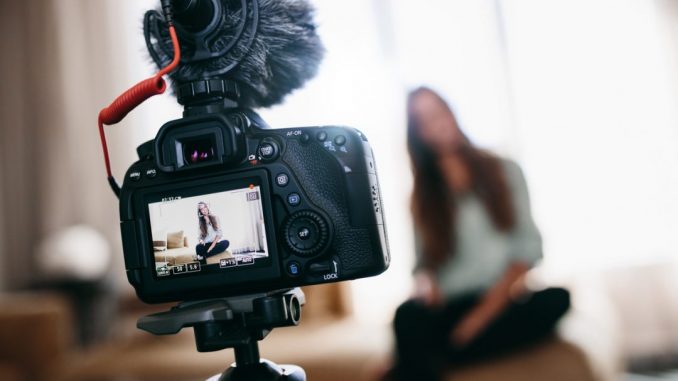
By Michela Arlia and Gabriela Flores
As the pandemic first took over our lives, forcing us to stay inside for months in 2020, campus closure not only meant the lack of proper in-person education but a temporary termination to opportunities within the arts. Among the arts on campus affected the most was the Film Department.
With many film majors relying on different resources like cameras and editing equipment, having the campus shut down drastically impacted their filmmaking, as production times were longer, and even vital connections were lost or never even made in the first place.
For Anakin Jackson, a third-year film student at BC, having had the opportunity of being a freshman on campus before COVID hit enabled him to establish some relationships, but not to the extent that he would have liked.
“[…] It was an interesting experience to be a freshman the fall pre-COVID because I got a chance to establish some relationships at school and a general understanding for it, but I was nowhere near being deep enough in my program to have robust connections that are necessary in film,” said Jackson. “For these reasons, I feel like my education has suffered.”
Despite the hardships of being online, students like Jackson were able to persevere and learn to do things differently in order to still be successful at their craft. Whether it be writing their next film’s storyline or learning how to use only a phone camera for production, BC film students were pushed more than ever to get creative under quarantine.
“I just learned a lot about myself and what I would like in a film. I don’t think you would be able to have that if other people were also into the filmmaking process or part of it,” said Paola Muñoz, a third-year film major with a concentration in production.
Though she was able to develop her style with more time to brainstorm her ideas, Muñoz has learned the importance of collaboration in filmmaking so far as an undergrad filmmaker working under COVID.
“[…] Connection is really important because I don’t think I started growing as a filmmaker until I started talking to people and meeting them, talking collaboratively about things,” Muñoz said.
For Derek Myers, a film student focusing on animation, film’s collaborative nature was hard to reimagine as a solo effort from miles away.
“Making things by myself on the opposite coast of all of the connections that I had made my freshman year was definitely a hurdle during the spring of 2020. Because I was already lonely, I honed my animation skills a little bit, but finding the motivation to do much was always a struggle,” said Myers, who is originally from Oregon.
While there were guaranteed obstacles to overcome, students were still able to bounce back, finding motivation in the simplest things.
“This is going to sound really kinda corny, but I just walk and listen to music. I run, I read quite a bit,” said Jackson. “I don’t have a prescription, method, or a system to execute idea creation…I think the premise of thinking there’s some way to think of ideas makes creation sort of clinical and that’s how you get – say – Hallmark movies.”
Tapping into her lens as part of a Peruvian immigrant family, Muñoz drew influences and motivations from her background while planning for her next films. As a minority filmmaker, she’s been able to offer a different perspective that most might not have been exposed to before. Nonetheless, she finds that even if you’re a minority film creator or not, there are shared hardships and experiences that both understand and ultimately translate onscreen.
“I think filmmaking is a way of educating someone and helping them learn what to do when certain situations come up because that’s really what it is. It’s telling an emotional truth but in a creative way,” she said.
A takeaway for most students is that though they may not have received the quality of education and experiences they expected during their time at BC, it did teach them to be resourceful and to always be creating.
“I think that I’ll carry on the idea that when there’s a will there’s a way, and not to wait to make anything,” said Myers. “I think that while Brooklyn College has not done as much for me as a filmmaker as I would have liked, the connections that I’ve made while in college will serve me for years to come, and I think that is far more valuable than anything else.”
For Muñoz and others, BC film professors and the department have done their best to navigate through the curveballs COVID has thrown at them, ensuring that students are still able to connect as much as possible. Nonetheless, as most across all departments can agree, in-person classes are the best option.
“Overall, in-person will always topple online. Online sucks,” Jackson said.
